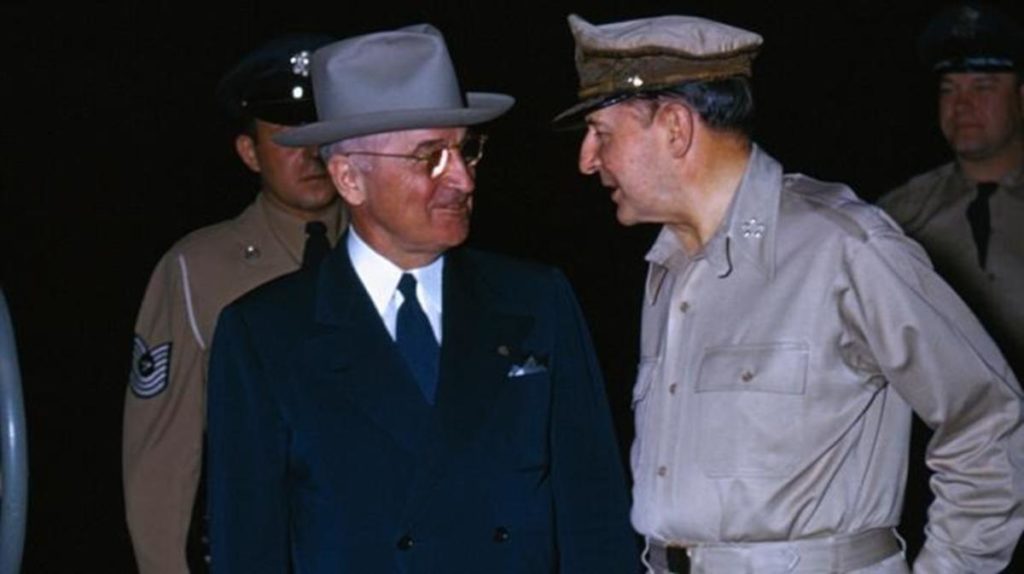Inflation, relative wealth, and historical memory

I’ve mentioned my little excursion into Harry Truman’s financial affairs. Here’s a nice example of how even highly educated and intellectually sophisticated people are prone to make facially absurd mistakes when dealing with old financial figures.
David McCullough’s biography Truman won the Pulitzer prize when it was published nearly 30 years ago, and it remains the standard biography of the 33rd president.
Here is how McCullough describes Truman’s financial situation when he left the White House in January of 1953:
He had come home without salary or pension. He had no income or support of any kind from the federal government other than his Army pension of $112.54 a month. He was provided with no government funds for secretarial help or office space, not a penny of expense money, and while he and Bess had been able to put aside part of his $100,000-a-year salary as president during his second term, primarily in government bonds, it was in all probability a modest amount. . . In fact, it is known that Truman had been forced to take out a loan at the National Bank in Washington in his last weeks as president, to tide him over, though the amount was never disclosed.
McCullough goes on to describe how Truman had, with his two siblings, acquired the several hundred acres of land that constituted the Truman family farm, but he asserts that Truman probably had little in the way of liquid assets, and that he and Bess moved into Bess’s mother’s old house – which was apparently in a state of some disrepair – out of financial necessity more than anything else:
Certainly, as things were, there could be no extravagant living. In effect they were land-rich only. . . .Indeed among the reasons why they had come back to Independence and the old house was that financially they had little other choice.
Yet despite these straitened circumstances, McCullough asserts, Truman refused to take the easy money that was available to him if he chose to trade on the cachet of his former office. Although “Truman had neither wealth to sustain him nor any particular prospects” of acquiring any, McCullough writes, his only intention “was to do nothing – accept no position, lend his name to no organization or transaction – that would exploit or commercialize the prestige and dignity of the office of the President.”
I’m not going to get into the details here and now of exactly how preposterous these assertions are, but I do want to note that they are in fact ridiculous on their face.
As McCullough notes, Harry Truman’s salary as president during his elected term was $100,000 per year (raised from the $75,000 per year he received during what would have been FDR’s fourth term).
How much money was $100,000 per year at the time? The government’s own inflation calculator tells us that $100,000 in 1949 is equivalent to $1.1 million today, but even this massive sum this is a gross understatement in terms of relative income. America is a vastly wealthier country today than it was 70 years ago — per capita GDP is four times higher. Thus while a family at the 95th percentile of income in 1949 was making $8,066 (about $87,000 in 2021 money), a similar family today makes more than $300,000. Thus in terms of relative income, Truman’s White House salary was equivalent to a contemporary salary of nearly four million dollars per year.
In fact, Truman’s salary was very comparable to the compensation received at the time by the top corporate officers of the nation’s biggest and most profitable corporations. As president, he was paid more than any major league baseball player in six of his eight years in office, except for the two years in which Joe DiMaggio also made $100,000 (a record salary that wouldn’t be broken until Willie Mays was paid $105,000 in 1963).
Under the circumstances, the notion that Harry Truman had to take out a personal bank loan just to be able to afford to move back to Independence, where he arrived with nothing to support him beyond a tiny monthly army pension, is not exactly plausible. But McCullough was so wedded to a particular narrative arc about his subject that he didn’t notice this has all got to be a bunch of malarky.
And it’s a bunch of malarky that turns out to have a lot of contemporary relevance, as this nonsensical story about Truman not having much if any money when he left the presidency has been repeated endlessly in the years since, and has provided essentially the only justification that has ever been put forth for why, for example, Donald Trump is in the process of receiving what is likely to be from an actuarial perspective around $15 million in government-funded post-presidential benefits over the course of the remainder of his miserable life, assuming he doesn’t get re-elected, and not counting the costs of Secret Service protection.


